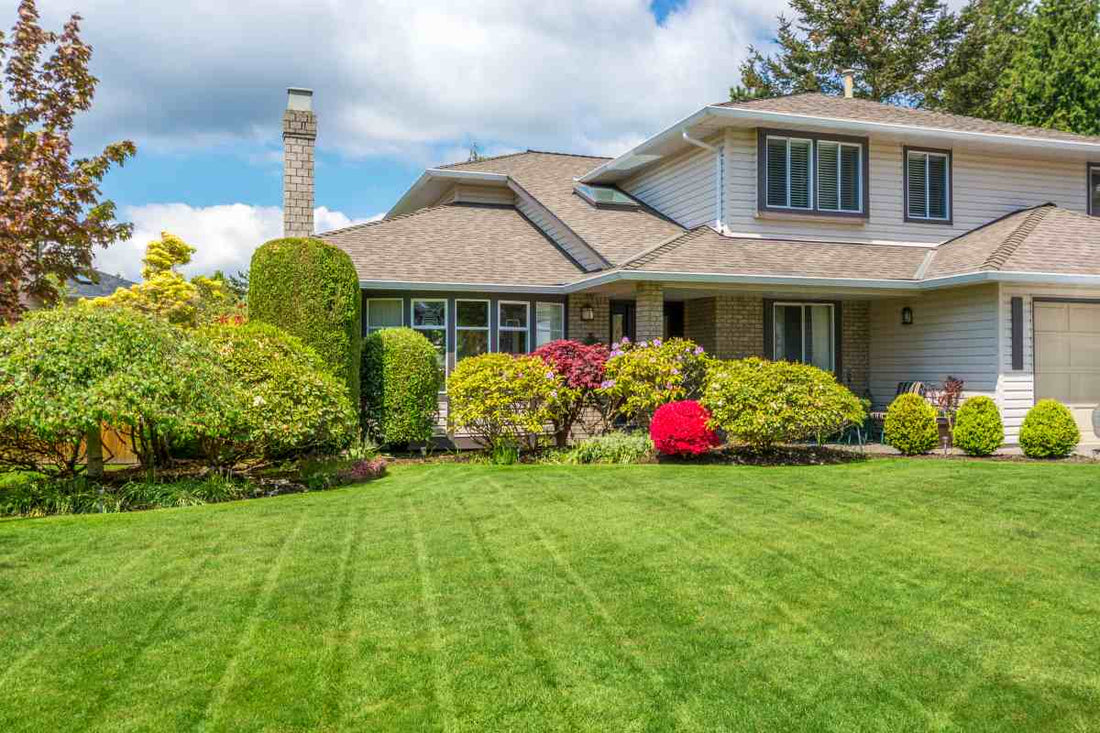
Can You Mix Bermuda and St. Augustine Grass?
Jamie TedderChoosing the right type of grass for your lawn requires careful consideration, especially if you live in Florida. A key factor is finding a variety that thrives in heat and withstands prolonged dry spells. However, other aspects like soil type, sun exposure, and maintenance requirements are equally important.
For these reasons, homeowners often narrow their options down to bermudagrass and St. Augustine—two of the most widely used warm-season grasses in the southern regions. Each offers unique characteristics: Bermudagrass boasts a dense and vigorous growth habit, while St. Augustine is favored for its shade tolerance and ability to establish into lush, vibrant green lawns. Because of these distinct advantages, many homeowners wonder: can you mix the two to get the best of both worlds?
While the idea of mixing these grasses may sound appealing, it's not advisable due to their differing growth habits, appearance, and care requirements.

Bermuda and St. Augustine Make Equally Great Lawns—On Their Own
Bermudagrass and St. Augustine have different growth habits, environmental preferences, and maintenance requirements. However, the same unique advantages that make each grass type ideal for specific conditions are also why it's best not to mix them—doing so can result in an uneven lawn with conflicting growth patterns and maintenance needs.
Bermudagrass
Characterized by its dense, low-growing habit, bermuda grass forms a tightly woven turf that stands up well to heavy foot traffic. It thrives in full sun and has excellent drought tolerance, making it ideal for sports fields, golf courses, and open, sunny lawns. A bermuda lawn also tolerates slightly acidic soil, which is common in certain regions in Florida. However, it doesn’t always fare well in shaded areas and requires consistent upkeep, such as regular mowing, to prevent it from becoming invasive.
St. Augustine Grass
On the other hand, this warm-season grass is more shade tolerant, making it an excellent option for lawns with partial to moderate tree cover or in areas where buildings create shadowed sections. It has broader grass blades and forms a lush, carpet-like appearance. St. Augustine grass prefers well-drained soils and regular moisture but can struggle under drought conditions without adequate watering. St. Augustine lawns are established more successfully through sod or plugs, as traditional establishment methods are less common.

Why You Shouldn’t Mix Bermudagrass and St. Augustine
Understanding the distinctions between bermudagrass and St. Augustine grass will help you select the suitable grass for your growing conditions, and knowing the strengths and weaknesses of each will prevent issues down the road.
Remember that although both grasses perform well in warm climates, mixing them is not recommended. Here's why:
Different Growth Rates and Habits
Bermudagrass is an aggressive grass type that spreads rapidly through above-ground stolons and below-ground rhizomes. Its vigorous growth can easily overtake and crowd out slower-growing St. Augustine, particularly in areas where the two grasses meet. This can lead to an uneven lawn appearance and reduced health for the St. Augustine grass.
Aesthetic Incompatibility
Bermudagrass and St. Augustine have distinctly different textures and appearances. Whereas Bermuda features fine, narrow grass blades, St. Augustine has wider blades and a coarser texture. Planting them together can result in a patchy look that disrupts the uniformity of your lawn.
Inconsistent Lawn Health
Because these grasses have different water and nutrient requirements, it’s challenging to maintain a balanced environment where both can thrive. St. Augustine may suffer in drought-prone areas where Bermudagrass thrives, while Bermudagrass may become thin and weak in shaded areas that favor St. Augustine.
When the two are mixed, these conflicting needs make maintaining a healthy and visually appealing lawn challenging. Instead, it’s best to plant one type that aligns with your lawn’s specific conditions and use the proper lawn care practices to support its growth.

Best Applications for Bermudagrass vs. St. Augustine Grass
When choosing between these two grass types, it's important to consider your lawn’s specific conditions and intended use to determine which will excel.
Shaded Areas: St. Augustine is the superior choice for areas with partial shade, such as under trees or in the shadow of buildings. For deeper shade, varieties like CitraBlue and Palmetto perform exceptionally well, as they are bred for increased shade tolerance and slower vertical growth, resulting in less frequent mowing.
Athletic Fields and High-Traffic Areas: Bermudagrass is ideal for areas with a lot of foot traffic or lawns exposed to direct sunlight all day. For example, the improved Bimini Bermuda variety is widely used in sports fields due to its superior durability and quick recovery from wear. This makes it a preferred choice for playgrounds, golf courses, and backyards with active pets or children.
Drought-Prone Regions: While both grasses are drought-tolerant, bermudagrass is more resistant to prolonged dry spells. Its deep root system allows it to survive in conditions with limited water availability, making it a more suitable option for regions with water restrictions or lower annual rainfall.
By understanding the strengths of each grass type, you can make an informed decision about which is better suited for your yard rather than trying to mix them.
Final Verdict: Bermuda vs. St. Augustine
The choice between bermudagrass and St. Augustine ultimately depends on your lawn’s specific needs and environmental conditions. Opt for bermudagrass if your lawn has plenty of sunlight and experiences high foot traffic. Alternatively, St. Augustine will deliver better results for shaded areas or lawns with less sun exposure.
Cultivate a healthy, uniform lawn by investing in high-quality sod that’s well-suited to your conditions. Bethel Farms is a trusted sod farm in Florida, offering fresh bermudagrass and St. Augustine sod, providing you with reliable solutions for a beautiful, resilient lawn. Whether you need a lush St. Augustine lawn for shaded areas or a tough bermudagrass for high-traffic spots, we have a range of sod options to suit your specific needs.
Visit the Bethel Farms website to explore your options and find the perfect sod variety for your lawn.

